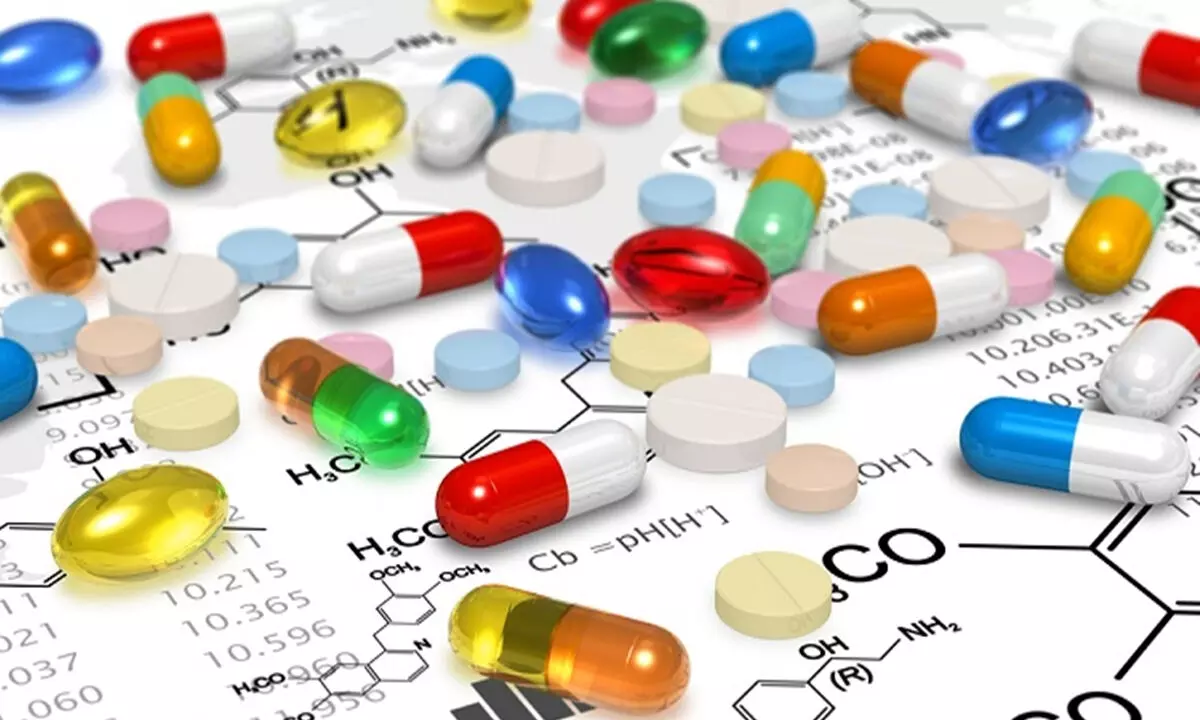Approval of 3 bulk drug parks a big boost to domestic API industry
In what will prove to be a big boost to the domestic active pharmaceutical ingredient (API) industry in the long run
image for illustrative purpose

In what will prove to be a big boost to the domestic active pharmaceutical ingredient (API) industry in the long run, the central government has recently given its approval for three Bulk Drug Parks, one each to Himachal Pradesh, Gujarat and Andhra Pradesh. The Department of Pharmaceuticals (DoP) has given its 'in-principle' approval to these parks under the Scheme "Promotion of Bulk Drug Parks", which is one of the key initiatives to support bulk drugs manufacturing in the country.
The Scheme, with a financial outlay of Rs. 3,000 crore notified in 2020, provides for financial assistance to three states for establishing bulk drug parks and aims to bring down the cost of manufacturing of bulk drugs by creation of world class common infrastructure facilities supported by the central government and thereby increase the competitiveness of the domestic bulk drug industry.
The financial assistance to the proposed bulk drug park in Gujarat and Andhra Pradesh would be 70 per cent of the project cost of common infrastructure facilities. In case of Himachal Pradesh, being a hilly state, financial assistance would be 90 per cent of the project cost. Maximum assistance under the scheme for one bulk drug park would be limited to Rs. 1000 crore.
As per the proposals submitted by these states, the bulk drugs park will be established in 1402.44 acres of land at Haroli tehsil, Una district, Himachal Pradesh; 2015.02 acres of land at Jambusar tehsil, Bharuch district in Gujarat; and 2000.45 acres of land at KP Puram & Kodhada of Thondagi Mandal of East Godavari district in Andhra Pradesh.
Of course, by launching the Bulk Drug Parks scheme, the government wanted to minimize the country's dependence on imports and to give fillip to indigenous manufacturing. It may be note that imports of bulk drugs and drug intermediates from China to India have increased by around 20 per cent in the fiscal year 2021-22, and accounted for almost 66 per cent of the total imports during the year.
Total imports from China during the fiscal year 2021-22 was Rs 23,273 crore, as compared to Rs 19,403 crore during the previous fiscal year. The growth of imports compared to financial year 2019-20 was almost 41.5 per cent in 2021-22, as the year 2019-20 reported imports of Rs 16,443 crore worth of bulk drugs and drug intermediates from China. In terms of quantity, imports from China were at 2.65 lakh metric tonne (MT) during 2021-22, as compared to 2.57 lakh MT in 2020-21 and 2.21 lakh MT in 2019-20.
The total imports of bulk drugs and drug intermediates were at Rs 35,249 crore, which is 4 lakh MT during financial year 2021-22, as compared to Rs 28,529 crore at 3.90 lakh MT during the previous fiscal, registering a 23.55 per cent growth in terms of value. In the year 2019-20, the country imported Rs 24,172 crore worth of bulk drugs and drug intermediates, which was around 3.64 lakh MT in terms of volume. It is under this backdrop, the DoP, in order to make the country self-reliant in APIs and drug intermediates, is implementing various schemes and one of the key interventions is the Scheme for bulk drug parks.
Obviously, the Indian government is seized of the seriousness of the issue as it has already taken some initiatives to encourage domestic manufacturing of bulk drugs. It has taken some timely initiatives to reduce the country's dependence on imports of APIs by taking a series of steps. One such very significant step has come in the form of the in-principle approvals for three bulk drug parks, one each to Himachal Pradesh, Gujarat and Andhra Pradesh.
The bulk drug parks to be developed under the scheme will provide common infrastructure facilities at one place thereby creating a robust ecosystem for the bulk drug manufacturing in the country and also reducing the manufacturing cost significantly. This scheme is expected to encourage domestic manufacturing of bulk drugs to reduce import dependence and to establish a dominant position in the global market by providing easy access to standard testing and infrastructure facilities.
This scheme will also help industry meet the standards of environment at a reduced cost through innovative methods of common waste management system and also to exploit the benefits arising due to optimization of resources and economies of scale. These three bulk drug parks, as well as other initiatives like Production Linked Incentive scheme-I, Production Linked Incentive scheme -II, and others, will contribute to the strengthening of the API industry in the country. Surely it will enhance the competitiveness of the pharmaceutical industry in the country.
(The author is freelance journalist with varied experience in different fields)

